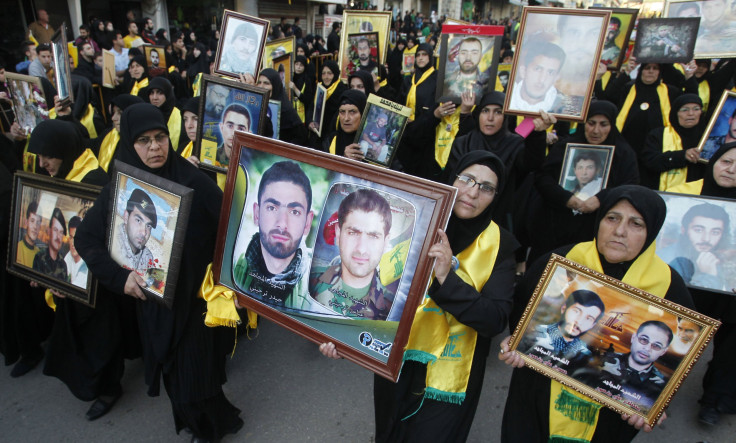Fate Of ISIS Hostages In Lebanon Hangs On Five Islamist Prisoners Allegedly From Fatah al-Islam

A phone call from Islamic State group militants saying they're holding a husband, brother or son can be a nightmare or provide a sliver of hope. For Nidal Mgheit, whose brother Ibrahim Mgheit is in militant custody, the call extended his brother’s life but made it dependent on the Lebanese government’s next move, according to Now Lebanon.
The so-called Islamic State, also known as ISIS, reportedly holds nine Lebanese military and police hostages. The group issued an ultimatum Friday, saying it would execute hostages if the Lebanese government did not overturn the prison sentences of five Islamists held in Lebanon’s Roumieh prison. Hostages represent both money and leverage for ISIS, and it is an unprecedented move for the group to risk them all in one trade, but this could have larger strategic implications. Militants extended the deadline Monday afternoon just as the distraught families of the 27 Lebanese held hostage by various groups in Syria took to Beirut’s streets, closing down a major highway.
“We know tire burning will not bring our sons back, but what else can we do?” a protestor asked the Daily Star.
“Some calls were made, and the threat has been delayed,” Health Minister Wael Abu Faour told reporters Monday, the Daily Star reported. “We gained some time. I can only say that we gained some time, nothing more.”
Government officials said they would wait for Prime Minister Tammam Salam, who was returning to Lebanon from the United Arab Emirates. Lebanese newspaper al-Akhbar reported the hostages’ fate would be decided by ISIS caliph Abu Bakr al-Baghdadi.
International Business Times previously reported ISIS had its eye on expanding its caliphate to Lebanon, but in light of the upcoming winter, the militants’ first priority was to secure a supply route from the Lebanese border to Syria. However, Baghdadi’s unprecedented caliphate expansion announcement could have changed the strategy.
“Lebanon is in grave danger of becoming the next victim of ISIS,” David Daoud wrote for the Washington Institute.
Weeks after it declared itself a caliphate, ISIS appointed Abdel Salam al-Ordoni as emir of Lebanon. Reports circulated accusing a Lebanese man, Monther Khaldoun al-Hassan, of providing ISIS with suicide bombs and working with Ordoni.
Hassan’s uncle is Khaled Mahmoud, also known as Abu Suleiman, founder of jihadist group Jund al-Sham, according to a report from Now Lebanon. During the U.S. occupation of Iraq, Jund al-Sham reportedly had strong ties of allegiance to Al Qaeda in Iraq leader Abu Musab al-Zarqawi, a founding father of what later evolved into ISIS.
Al Qaeda affiliate Jabhat al-Nusra was thought to have captured all 27 hostages in the Lebanese border city of Arsal in August. But the lines dividing Jabhat al-Nusra from the Islamic State group are not as clear in Lebanon as they are in Syria. Last month, Jabhat al-Nusra militants proposed a prisoner exchange to a Qatari mediator, but the Lebanese government refused the deal.
The militants have already killed three Lebanese hostages: ISIS beheaded two and al-Nusra shot one.
© Copyright IBTimes 2024. All rights reserved.












